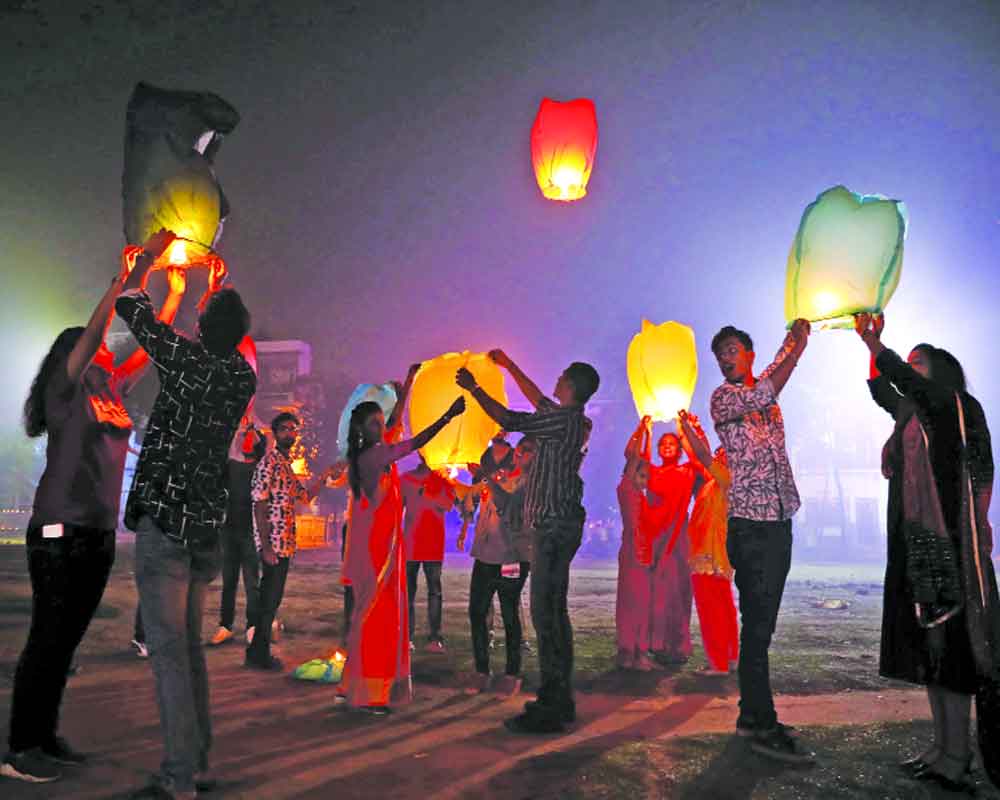Celebrations, measurements play a significant role in life
Another New Year, in the form of 2023, is on our calendar. As usual December 31 marked both verve and spirited celebrations. Nothing is wrong with that; however, a simple question about the celebration on December 31 is inherent in the situation.
How was December 31 different, say, from November 30, or coming January 31? It is the same diurnal circulation of the earth. The sunrise of January 1 was not any different from any other day!
A calendar is clearly a manmade division of time, marked by a convenience for time calculation. There are different calendars around the world, of which the Gregorian Calendar, the Vikram Samvat Calendar, the Saka Calendar are only a few of the many variants.
Be that as it may, celebrations and measurements play a significant role in human life. Thus it is that concepts and everyday living have to be blended together for a healthy lifestyle. The art of doing so is the art of effectiveness. Ultimately, it is the mind that shapes the understanding of the world and relationships.
Art lies in resolving life’s dilemma and seeing ‘meaning’ into things. This happens even when does not formally realise it. It is this ‘perception’ and ‘reality’ that affects behaviour.
All human expressions of love, hate, attraction, depression and more are, therefore, also, sensory experiences. And it is this iteration that creates human civilisation with its linkages to ‘territory’.
It is important to realise that values provide the link between self and the external world. It is this connect, also, that is a challenge to unravel. Be it philosophy, be it the arts, or whatever else, it is embedded in matter and driven by spirit. To be in sync with this relationship, is the requirement of life.
Art of life is, also, embedded in values and the ability to redeem one’s word. This is why organisations are formed to deliver as per certain known ‘standards’. To organise this is the route to success.
It is this ability to generate, sustain, and implement standards that is at the core of organizations. It covers everything from individual demeanour to societal relationships.
The word “organisation” has a rough Sanskrit translation, “Yojana”. This word is derived from the Sanskrit root word ‘yuj’. Translated it means to “organise”. In the Vedas, there is a dictum which roughly translated means “it is difficult to find someone who can organise”.
To organise, one must have standards, fair play, and the ability to articulate forms. The Sanskrit dictum clearly says that to do this is difficult. A look at the history of institutions of all kinds reveals that only those with the ability to ‘organise’ survived. To organise, therefore, requires the enunciation of principles and the ability to follow these principles.
To organise is, in other words, a high form of human relationship: the relationship between matter and spirit, the relationship between matter and matter, and, ultimately, any activity that needs to be goal-driven.
A calendar is a link in this ability to organise, and it is central to any assessment or measurement.
This approach has to be made a part of the training to the individuals and training of groups. This covers everything from the private to the public sectors, it includes the local governments, state governments, the national government, the army, the cooperative movement. The day one realises this, one will really usher in a ‘New Year’, in a manner of speaking.
(The author is an internationally acclaimed management consultant)


























